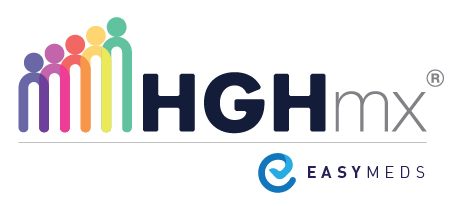Growth Hormone
Most functions of the human body are regulated by substances called hormones. Hormones are chemical messengers that are released directly into the blood, which then transports them to tissues and organs of the body to exert their functions. HGH is one of these. Sometimes, our body fails to produce enough growth hormone.
This condition is referred to as GH deficiency. If an individual experiences growth hormone deficiency, he or she may be treated with recombinant human growth hormone – a synthetic growth hormone. Recombinant human growth hormone is identical to the natural growth hormone produced by your body.
Growth Hormone Effects
When you are injected with GH, your liver converts it to a compound called Insulin-like Growth Factor-1 (IGF-1). IGF-1 plays a very vital role in repairing tendon tissues, muscle tissues, ligaments, and other tissues in your body. Therefore, the first thing that happens after injecting Genotropin is that it gets converted into surplus IGF-1 and begins repairing tissues. The conversion of GH to IGF-1 starts just 4 minutes after injection. Processing of HGH continues for over 4 hours. This furnishes your body with the nutrients it needs to recover and rejuvenate.
GH Therapy
HGH therapy responds to mitochondrial function. Mitochondria are little powerhouses that help your body to produce new cells. HGH stimulates these mitochondria to produce plenty of new cells in all parts of your body. These cells are stronger, and better and have many benefits. Because they are accurate copies of the original cells, you’ll enjoy anti-aging and life extension benefits. Other benefits include reduced wrinkles and better-looking skin. These new cells are also helpful for those who want to gain more muscles, so if you are working out, then your muscle cells will grow and you’ll have more defined and mature muscles.
Natural GH and Growth
Growth hormone, as the name implies, plays a very important role in growth. Naturally, it is produced by the pituitary gland (which lies at the base of the brain) and then secreted into the general circulation (the bloodstream) from where it moves to the body’s tissues. When growth hormone moves to the body tissues, it stimulates insulin-like growth factor 1 production. The ability of growth hormone to stimulate growth is partly attributed to its role in IGF-1 production.
HGH Results
Not everyone will experience the same results. However, clinical studies have helped to support treatment decisions. During treatment, you must educate your child on the process of growth. The child should understand that growth is a gradual process – it doesn’t occur spontaneously. We will discuss with you about realistic expectations you should have with regards to your child’s treatment. You must let your child know what to expect. This will keep him/her motivated.
